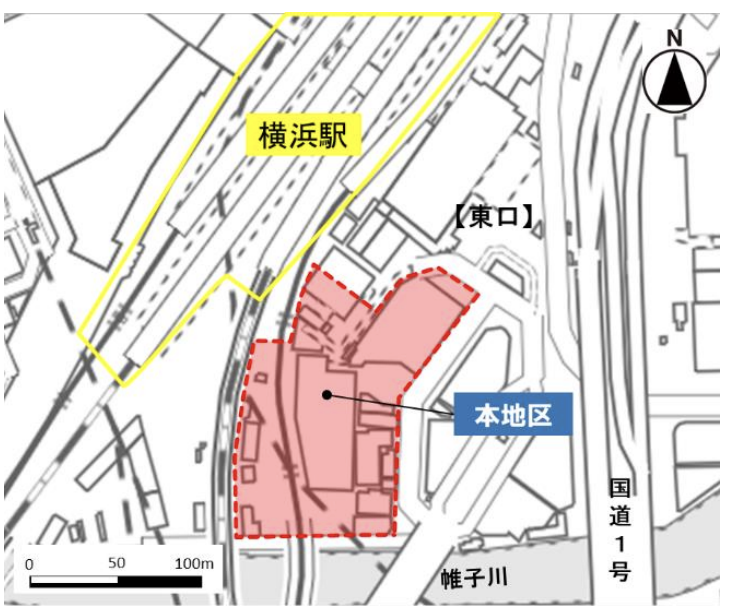The sale of real estate is an important transaction that many people experience only a few times in their lives. There are people who consider selling real estate for various reasons, such as reshuffling their own homes, disposing of inherited properties, or selling investment properties.
As INA&Associates, we have assisted in the sale of numerous real estate transactions. From our experience, we can tell you that the success of a real estate sale depends on proper knowledge and preparation. By understanding the flow and procedure of the sale, and knowing the costs and taxes in advance, you will be able to realize a sale on better terms.
In this article, we will explain the basics of real estate sales in an easy-to-understand manner for those who are considering selling for the first time. We will deliver the contents which are in line with practice from the flow of sale to expenses, an appraisal method, and how to choose a mediation contract. By acquiring these knowledge, you will be able to approach sale of real estate with peace of mind.
Basic flow and procedure of sale of real estate
The sale of real estate proceeds through multiple steps. Generally, it takes about 5 to 6 months to sell real estate, and the key to success is to take appropriate actions at each step.
1. market research and market analysis
The first step in selling real estate is to understand the market price of the property you own. Knowing the market price makes it possible to set an appropriate sale price and serves as the basis for developing a sales strategy.
For market price research, use the "Real Estate Information Library" provided by the Ministry of Land, Infrastructure, Transport and Tourism, or "Raines Market Information" provided by the Real Estate Information Network. These sites enable a more accurate grasp of the market price, since actual transaction prices and contracted cases can be confirmed.
INA&Associates comprehensively analyzes this information and proposes the best sales strategy for our clients.
2. request an appraisal from a real estate company
After grasping the market price, we request an appraisal from multiple real estate companies. Assessments are basically conducted free of charge, and requests can be made at the stage of considering the sale of the property.
There are two kinds of appraisal methods: a desk-top appraisal (simple appraisal) and a home-visit appraisal (detailed appraisal). A desk-top appraisal is an approximate price calculated based on basic information of a housing, and a result can be obtained in a short period of time. On the other hand, a home-visit appraisal is a detailed appraisal in which the property is actually confirmed, and a more accurate price calculation is possible.
If you have a firm intention to sell the property, we recommend that you choose the onsite appraisal. During the appraisal, not only the condition of the property but also the surrounding environment and legal restrictions are comprehensively evaluated, so you can obtain a more realistic appraisal value.
Property Survey and Price Determination
In the property survey by the real estate company, the boundary of the land is confirmed, the condition of the structure and facilities of the building, and the right-of-way relations are checked. Based on the results of this investigation, the final sale price is determined.
Hearing from the seller is also an important element of the property survey. Information that cannot be confirmed in writing, such as the property's history, relationship with the neighborhood, and equipment defects, may affect the price. Providing accurate information will enable the seller to set a fair price. 4.
4. conclusion of brokerage contract
After comparing and examining an appraisal result and the correspondence of a real estate company, and deciding on the company which requests sale, a mediation contract is concluded. There are three kinds of mediation contracts: a under-exclusive-contract exclusive duty mediation contract, a full-time mediation contract, and a general mediation contract, and each has different features.
A under-exclusive-contract exclusive duty mediation contract is a contract with only one company, and the most active sales work can be expected. A full-time mediation contract is also a contract with only one company, but the seller himself can find a buyer. A general mediation contract can contract with two or more companies, and while a wide sales channel can be secured, the aggressiveness of each company tends to be relatively low.
5 Start of sales activities
After a mediation contract is concluded, a full-scale sales work by a real estate company begins. Property information is transmitted through various media, such as Internet advertising, newspaper inserts, and storefront postings.
In addition, by registration with the real estate distribution system (Raines), property information is shared throughout the industry, and it becomes possible to approach more purchase desire persons. In a under-exclusive-contract exclusive duty mediation contract, registration to Raines is obligated within five days, and within seven days in a full-time mediation contract.
6. preliminary inspection correspondence and condition negotiation
When a purchase desire person appears, correspondence of a private viewing becomes necessary. Since the viewing has a significant impact on the purchase decision, it is important to convey the property's appeal to the maximum extent possible.
During the viewing, it is necessary to make sure that the property is clean and tidy, and that the lighting is bright and ventilated to create a good impression. It is also important to answer questions from prospective buyers accurately and to properly promote the features of the property and the convenience of the surrounding environment.
Once a purchase certificate (purchase application form) is submitted by the prospective purchaser, negotiations on conditions such as price and delivery time are conducted. At this stage, the real estate company acts as an intermediary, aiming to reach an agreement on terms that are optimal for both parties. 7.
7. sales contract, settlement and delivery
Once agreement is reached on the terms and conditions, a sales contract is concluded. At the time of signing the contract, the buyer will receive an explanation of important matters and sign and seal the sales contract. At this point, a deposit (usually 5-10% of the purchase price) is received from the buyer.
The period from the conclusion of the contract to the settlement and delivery of the property is usually one to two months. During this time, the buyer's mortgage loan review and the seller's mortgage cancellation procedures are conducted.
On the day of settlement, the property is delivered and the transfer of ownership is registered at the same time as the receipt of the balance of the payment. A judicial scrivener will be present to confirm the necessary documents and complete the registration procedures, ensuring a safe and secure transaction.
| Steps | Contents | Estimated time period | Main points to note |
|---|---|---|---|
| 1 | Market survey and market analysis | 1 to 2 weeks | Utilize multiple sources of information to obtain an accurate understanding of the market |
| 2 | Request for valuation | 1-2 weeks | Request multiple companies, and compare and consider the assessed value and correspondence. |
| 3 | Property survey and price determination | 1-2 weeks | Set a fair price by providing accurate information |
| 4 | Mediation contract conclusion | 1 week | Understand the feature of a contract form, and perform the best choice. |
| 5 | Sale activity start | 2 to 3 months | Acquire prospective buyers through effective advertising strategies |
| 6 | Handling viewings and negotiating terms | 2 to 4 weeks | Maximize the appeal of the property and negotiate appropriate terms and conditions. |
| 7 | Sales contract and settlement | 1 to 2 months | Prepare necessary documents and ensure a secure transaction |
Costs and Taxes Associated with Real Estate Sales
Various costs are incurred in the sale of real estate. Generally, the cost of sale is estimated to be 4-6% of the sale price, which can be figured out in advance to make a financial plan.
Mediating fee
The most significant expense in the sale of real estate is a mediating fee. A mediating fee is paid to a real estate company when a sales contract is concluded as a contingency fee.
The upper limit of a mediating fee is set by law and is 3% of the sale price + 60,000 yen + consumption tax. For example, a mediating fee when selling off for 40 million yen is (40 million yen × 3% + 60,000 yen) × 1.1 = 1,386,000 yen.
Payment of a mediating fee is usually made by paying half at the time of a sales contract and the remaining amount at the time of settlement and delivery. However, since payment conditions may differ depending on a real estate company, it is important to confirm at the time of mediation contract conclusion.
Stamp duty
A stamp tax is imposed on a sales contract. The amount of stamp tax is determined according to the sales price, and tax is paid by affixing revenue stamps to the contract.
Due to a reduction until March 31, 2027, the stamp tax on real estate sales contracts has been reduced as follows If the sales price is more than 10 million yen but less than or equal to 50 million yen, the tax is 10,000 yen; if the sales price is more than 50 million yen but less than or equal to 100 million yen, the tax is 30,000 yen.
Since both the seller and the buyer keep the sales contract, both parties bear the stamp tax.
Registration fee
When selling real estate, it may be necessary to register the cancellation of a mortgage or a change of address. These registration procedures require a registration and license tax and a fee to be paid to a judicial scrivener.
The registration tax for mortgage cancellation registration is 1,000 yen per piece of real estate. Remuneration for judicial scriveners varies from office to office, but generally ranges from 10,000 to 30,000 yen.
If a change of address registration is required, a separate registration tax of 1,000 yen per piece of real estate and judicial scrivener's fee will be required.
Transfer Income Tax
Transfer income tax is imposed when a profit is generated from the sale of real estate. Transfer income is calculated by subtracting acquisition costs and transfer expenses from the sale price.
The transfer income tax rate varies depending on the period of ownership. The tax rate is 39.63% (30% for income tax, 9% for inhabitant tax, and 0.63% for special income tax for reconstruction) for short-term transfer income with an ownership period of five years or less, and 20.315% (15% for income tax, 5% for inhabitant tax, and 0.315% for special income tax for reconstruction) for long-term transfer income with an ownership period exceeding five years.
However, for the sale of residential property, there are special exemptions such as a special deduction of ¥30 million and reduced tax rates, which can reduce the tax burden in many cases.
Other Expenses
In addition to the above, the following expenses may be incurred.
Surveying fees are required when the boundaries are unclear or when surveying is requested by the buyer, and generally cost between 300,000 and 800,000 yen.
If demolition of the building is required, demolition costs of approximately 1-3 million yen may be necessary.
Moving expenses, temporary housing, and house cleaning expenses may also be incurred, depending on the situation.
| Cost Items | Calculation method and market price | Payment period | Remarks |
|---|---|---|---|
| Brokerage fee | (Sales price x 3% + 60,000 yen) + consumption tax | At the time of contract and delivery | Paid as contingency fee |
| Stamp duty | Determined according to the sales price | At the time of contract | Reduction measures apply (until March 2024) |
| Registration of mortgage cancellation | Registration and license tax 1,000 yen per item + judicial scrivener's fee | At the time of settlement | If there is a mortgage |
| Transfer income tax | Transfer income x tax rate | At the time of filing tax return for the following year | Special deductions may be applicable |
| Surveying cost | 300,000-800,000 yen | At the time of surveying | When boundary determination is required |
| Demolition cost | 1-3 million yen | At the time of demolition | When demolition of an old house is required |
How to check the appraisal and market price
In the sale of real estate, proper pricing is an important factor for success. An accurate appraisal and market grasp will enable you to formulate an appropriate sales strategy.
Types and features of the appraisal method
There are two methods of a desk appraisal (simple appraisal) and a home-visit appraisal (detailed appraisal) in a real estate appraisal. It is important to understand each feature and to select an appropriate method according to the purpose.
A desk-top appraisal is an approximate price calculated based on the basic information of a property (location, area, age of construction, etc.), referring to past transaction examples and market trends. Because it is performed without confirming the site, the result can be obtained in a short period of time, and it is suitable for grasping the price in the initial stage where sale is being considered.
On the other hand, an onsite appraisal is a detailed appraisal in which a housing is actually confirmed. Since the condition of the building, the sunlight, the view, and the surrounding environment, etc. are comprehensively evaluated, a more accurate assessed value can be calculated. When the will to sell is firm, it is recommended to choose the home-visit appraisal.
Method and point of market price investigation
As a method to investigate the market price by yourself, there is the use of public information sites. In the "Real Estate Information Library" of the Ministry of Land, Infrastructure, Transport and Tourism, actual transaction prices can be confirmed on a map, and a rough grasp of the market price is possible.
On "Raines Market Information" of the Real Estate Information Network, you can set more detailed search conditions and check contracted cases of similar properties. By narrowing down conditions such as age of construction, distance from station, and time of contract, you can grasp the market price for conditions closer to your property.
It is also useful to check similar properties currently for sale on real estate portal sites. Note, however, that these are selling prices and may differ from the actual contract price.
Points for judging the validity of an assessed value
When an appraisal is received from multiple real estate companies, the assessed value may vary. In this case, it is important to understand the points to judge the validity of the assessed value.
First, make sure that the basis for the appraisal is clearly explained. A company that calculates the assessed value by showing specific examples of transactions of similar properties, market trends, and characteristics of the property is considered reliable.
Moreover, as for the company which presents an extremely high assessed value or a low assessed value, it is necessary to confirm the reason in detail. An assessed value that is too high may be a strategy for mediation contract acquisition, and an assessed value that is too low may aim at an early sale.
Documents to be prepared at the time of an appraisal
In order to receive an accurate appraisal, it is important to prepare necessary documents in advance. These documents allow you to provide detailed information about the property to the real estate company.
A certificate of registered matters (kijikoshomeisho) of the land and building is required to confirm the basic information and rights of the property. The property tax notice is used to confirm the property tax assessment value.
For buildings, a building confirmation certificate, inspection certificate, and design documents will enable a more detailed assessment. For condominiums, management regulations and survey reports on important matters are also useful.
In addition, past remodeling history, equipment replacement history, and materials related to the boundaries with neighbors are also useful to improve the accuracy of the appraisal.
| Appraisal Method | Period | Accuracy | Applicable Situation | Advantages | Disadvantages |
|---|---|---|---|---|---|
| Desk-based assessment | 1-3 days | Approximate estimate | Initial stage of consideration | Results obtained in a short period of time, no visit required | Limited accuracy |
| On-site assessment | 1-2 weeks | Detail | After determination of intent to sell | High accuracy, detailed market analysis | Time required, visit coordination required |
How to use the valuation results
The results of the appraisal can be used not only to set the sale price, but also to develop a sales strategy. If the assessed value is higher than the market price, a strategy that maximizes the appeal and features of the property is effective.
On the other hand, if the assessed value is lower than the market price, it is important to analyze the reason and take measures if there are points that can be improved. For example, cleaning, remodeling, and staging can improve the impression of the property.
In addition, by comparing multiple appraisal results, it is possible to grasp the characteristics and areas of expertise of the real estate company. It is a roadmap to success to select the best real estate company by comprehensively judging not only an assessed value but also the contents of a proposal and the quality of correspondence.
Kind and choice of a mediation contract
In the sale of real estate, the choice of a mediation contract is an important element which determines the direction of a sales work. each of three mediation contracts has a feature, and it is important to perform the best choice according to the seller's situation and hope.
Under-exclusive-contract exclusive duty mediation contract
A under-exclusive-contract exclusive duty mediation contract is a form in which a contract is concluded with only one real estate company. Even if the seller cannot request another real estate company in succession and the seller himself finds a buyer, it is necessary to perform dealings through the real estate company which made a contract without fail.
The greatest merit of this contract form is that active sales activities of a real estate company can be expected. Since there is no competition with other companies, they invest aggressively in advertising expenses and sales activities, aiming for an early sale. In addition, the duty of registration to Raines is the shortest within 5 days, and the duty of reporting to the seller is set frequently as more than once a week.
On the other hand, as a demerit, the seller's options are limited. Even if by any chance there is dissatisfaction with the correspondence of the real estate company which made a contract, it is not possible to change to another company during the contract period.
Full-time mediation contract
A full-time mediation contract is also a contract with only one company, but when the seller himself finds a buyer, it is possible to deal directly without going through a real estate company. This point is a big difference from a under-exclusive-contract exclusive duty mediation contract.
In a full-time mediation contract, the registration duty to Raines is within seven days, the reporting duty to the seller is set to once or more in two weeks, and thick support can be expected next to a under-exclusive-contract exclusive duty mediation contract.
For a real estate company, since the seller may find a buyer by himself, a certain amount of sales activity can be expected from the fact that it is still one company full-time duty though the positiveness as much as a under-exclusive-contract exclusive duty mediation contract may not be expected.
General mediation contract
A general mediation contract is a form in which a contract can be concluded with two or more real estate companies at the same time. By requesting sale to more real estate companies, a wide sales channel is secured, and it becomes possible to approach many purchase desire persons.
There are an explicit type and a non-explicit type in a general mediation contract. An explicit type must clearly state which other real estate companies are under contract with, and a non-explicit type has no obligation to do so.
The merit of a general mediation contract is that a network of several real estate companies can be utilized. Since each company has a different customer base and areas of expertise, it is possible to deliver housing information to a larger number of purchase desire persons.
However, as a disadvantage, the aggressiveness of each real estate company tends to be relatively low. Since other companies also handle the same properties, investment in advertising costs and sales activities may be modest. In addition, since there is no obligation to register or report to Raines, the progress of sales activities may be difficult to grasp.
Contract term and renewal
In all mediation contracts, a contract term is defined, and after the contract term expires, it can be decided whether to renew by the seller's intention.
Even during the contract term, if there is a justifiable reason, it is possible to cancel the contract. However, it is important to confirm the conditions of contract cancellation in advance because expenses for the sales work which a real estate company has already performed may be charged.
Mediation contract selection point
The choice of a mediation contract should be decided according to the characteristic of a housing and the seller's situation. In the case of a housing in a popular area or a housing with a characteristic charm, sale can be expected under better conditions by requesting many real estate companies through a general mediation contract.
On the other hand, when a property is expected to be difficult to sell or an early sale is desired, it is effective to request intensive sales activities to one company through a under-exclusive-contract exclusive duty mediation contract or a full-time mediation contract.
In addition, the track record and correspondence ability of a real estate company are also important judgment elements. If a reliable real estate company is found, a better result can be obtained by building a close relationship through a full-time system contract.
| Contract Type | Number of companies under contract | Raines Registration | Reporting Obligation | Self-discovery transactions | Main merit |
|---|---|---|---|---|---|
| Under-exclusive-contract exclusive duty mediation | Only one company | Within 5 days | More than once a week | Not possible | Most active sales activity |
| Full-time mediation | Only one company | Within 7 days | More than once in 2 weeks | Possible | Aggressive sales activity and flexibility at the same time |
| General mediation | More than one company possible | No obligation | No obligation | Possible | Securing a wide range of sales channels |
Precautions when concluding a mediation contract
When concluding a mediation contract, it is important to fully confirm the contract contents. It is necessary to clearly grasp the amount of a mediation fee, payment conditions, a contract period, cancellation conditions, etc.
It is also important to confirm the details of sales activities in advance. Smooth sales activities can be realized by fully discussing with the real estate company what advertising media will be used, how to handle private viewings, how to proceed with price negotiations, and so on.
Furthermore, it is also recommended to confirm the reporting method and frequency of sales activities. Regular reporting enables you to grasp the progress of sales activities and revise your strategy as necessary.
Conclusion
Selling real estate is a complex process, but with proper knowledge and preparation, it can be a success. It is important to use the basic knowledge presented in this article and proceed with the sale activities in a well-planned manner.
The key points for a successful real estate sale are as follows.
The first step is to begin with an accurate understanding of the market. By utilizing multiple sources of information and understanding the appropriate price for your property, you can develop a realistic sales strategy.
Next, request an appraisal from multiple real estate companies and make a comprehensive judgment based not only on the assessed value, but also on the content of the proposal and the quality of the response. Finding a reliable partner is the key to a successful sale.
In the selection of a mediation contract, it is important to consider the characteristics of a housing and the seller's situation, and to select the most suitable contract form. By fully understanding the contents of the contract and maintaining close communication with a real estate company, effective sales activities can be realized.
In terms of expenses, it is necessary to understand brokerage fees, taxes, and other expenses in advance and to make a financial plan. In particular, transfer income tax may be reduced by taking advantage of preferential measures such as special deductions.
During the sale process, it is important to focus on responding to viewings and maximizing the appeal of the property. You can make a good impression by keeping the property clean and tidy, as well as by appropriately answering questions from potential buyers.
As your next action, we recommend that you begin by researching the market value of your property. Then, find a reliable real estate company and get a detailed appraisal so that you can make a concrete plan for the sale.
Selling real estate is one of the most important decisions you will make in your life. With adequate preparation and proper support, you will be able to achieve a satisfactory outcome.
When considering the sale of real estate, please feel free to contact INA & Associates, Inc. with our extensive experience and expertise. We will propose the best sale strategy for each of our clients and support safe and secure transactions. With "human resources" and "trust" at the core of our management, we will do our utmost to support the sale of your valuable assets.
Frequently Asked Questions
Q1: How long does it take to sell real estate?
Q2: How much will it cost to sell the property?
Q3: Is the appraisal free of charge?
Q4: Is it possible to sell the property while living in it?

Daisuke Inazawa
Representative Director of INA&Associates Inc. Based in Osaka, Tokyo, and Kanagawa, he is engaged in real estate sales, leasing, and management. He provides services based on his extensive experience in the real estate industry. Based on the philosophy that “human resources are a company's most important asset,” he places great importance on human resource development. He continues to take on the challenge of creating sustainable corporate value.

.png)













